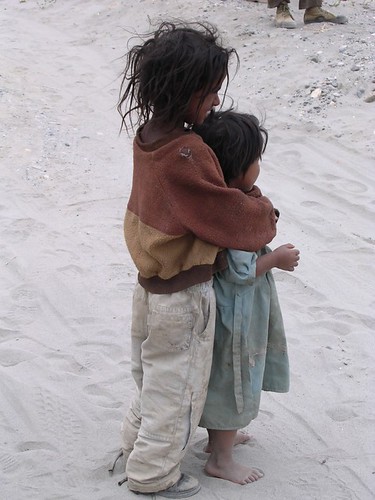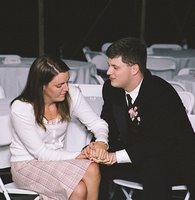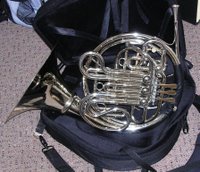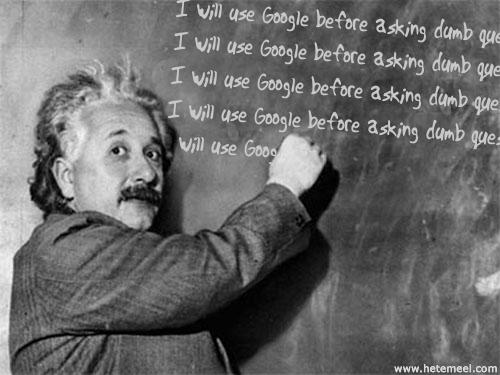
Social justice has never been my specialty. I worked at a soup kitchen once, which didn't really move me that much. I watched the kids do their thing, and it really just felt like my school cafeteria in Victor, only slightly more colorful (they went with blue and green on the walls, Victor opted for hospital white). Call me insensitive, I probably am.
Lately I've heard a lot that makes me wonder about the effectiveness Christians have on the world around them. I mean, what better way to reach people than the way Jesus did - by helping them. He spent a lot of time with people that society didn't really like that much - lepers, the blind, gentiles, tax collectors, Roman centurions ... all undesirables according to Jewish law.
My aunt, a woman who has a huge compassion for those less fortunate, told me a story once that I'll never forget. She was with the Peace Corps at the time, and wandering through some jungle trying to get relief supplies to a group of people, when they walk into this clearing full of mud huts and mostly naked natives. What caught her eye was the huge two-story white clapboard house with a picket fence owned by a missionary couple who invited the weary group in for lemonade. When asked about their mission, they explained that their sole purpose was to inform the locals that they were sinners.
As if that's all there is.
No, "Jesus loves you," or even "repent, and you'll be forgiven." Apparently, they had the natives build them a landing strip (to get supplies to build their house), for which the missionaries payed the tribe a pot. I'm all for shiny things, particularly when they involve food, but a pot's value, at least where I come from, doesn't really outweigh the value of an airstrip(yes, we could ask if the pot represents a more permanant dishware solution, eliminating hours of tedious work carving new pots because the village idiot burned up the last cooking pot, but why?)
I've often wanted to answer my Aunt's implicit questions about a faith that tells people that they're sinners and does nothing to help them, and then exploits them. But I can't - all I can do is appologize for the insensitivity of the people that embarrass me too. If we are to follow scripture clearly, then as Christians, we are bound to make the world a better place day in and day out.
If we are to imitate Jesus in all things, our primary concern is people. The only people Jesus ever condemned were the religious leaders who refused to see the spirit of the scriptures! It is after this passage that mimos (greek for "imitate") is named; we strive to imitate Christ in our daily lives.
And so I give you several organizations that deserve your support. To be clear: this is new to me too; of anyone, I am the worst at helping anyone but myself. I say we all try this together. I do not ask you to simply contribute money (it's easy to donate and think your job is done), but ask yourself, how can you bless the world today? How do you imitate Jesus in the world around you? Do you pass right by those homeless people day in and day out on the way to meaningless meetings without ever thinking about offering a meal? Do you pass by the same exhausted looking coworker every day without asking if she's feeling ok? Maybe, can you help? Have you asked your mailman his name? What hope have you given the world by waking up today?
World Hope
UNOH
Invisible Children
We do this not because it saves us, or because it could save others. We do this because it is right, because it is good. It is good.
"The time has come to realize
And see the plan you've been designed for















